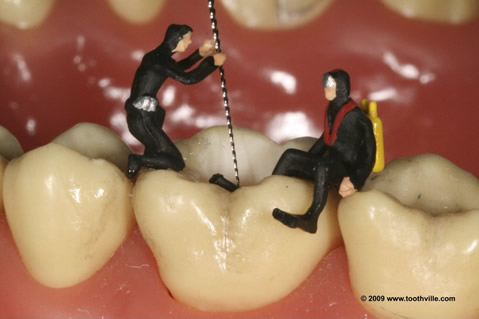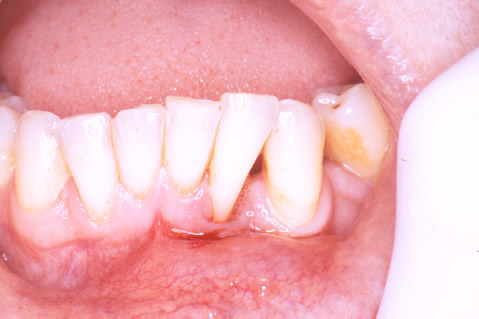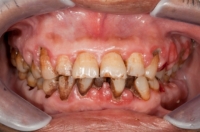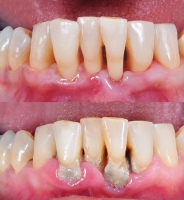The Management of Root Resection course for Dental Practice



This session will consider the indications for the use of root resection and cover the selection of appropriate techniques for a given situation. A fallback plan can then also be made for either expected long-term or unexpected short-term outcomes. The actual technical details of the treatment procedures are also considered.
Learning Objectives
By the end of this session you should be able to:
- Assess the factors affecting choice of treatment method
- Select the appropriate method of carrying out root resection treatment
- Provide a reasonable prognosis and fallback plan to the patient
Root resections are complex procedures which involve root filling, root resection and in many cases subsequent restoration of the resected tooth with a crown.
Before commencing this session you should have knowledge of:
- The concept of risk factors and the basic disease process
- The periodontal/restorative interface including molar endodontics
- Basic periodontal surgical and non-surgical techniques
Roger Mosedale B.D.S, F.D.S.R.C.S Edin., M.G.D.S., M.R.D., F.F.G.D.P.(UK)
Roger has run a specialist referral practice as part of a larger referral practice for over 35 years. He is a past president of the British Society of Periodontology and was responsible for the creation of the Guidelines for Treatment, and the subsequent revision of these. His particular interest has been the interface between periodontology and the other disciplines of dentistry, especially the perio-restorative interface and the incorporation of implant treatment into this area. Effective and efficient treatment is a major interest. He developed one of the first risk assessment indices fifteen years ago and has extensive experience in the use of risk as an aid to planning predictable treatment and outcomes.
Over many years, Roger has been extensively involved in postgraduate teaching and has given many courses both in the UK and Europe. He has also taught undergraduates at Birmingham Dental School for many years. He has examined at FDS, MGDS, FFGDP, BDS and diploma levels.
Currently, Roger is partly retired but remains very active in undergraduate teaching in Birmingham, and also at MSc and Restorative Diploma level. He runs a study group on treatment planning and an undergraduate special study module on treatment planning.

- Medical and Pharmacology | Human diseases and medi...
- Posted By eIntegrity Healthcare e-Learning
- Posted Date: 2024-11-06
- Location:Online
- This session will describe rheumatoid arthritis (RA), systemic lupus erythaematosus (SLE) and Sjögren’s syndrome. It will also identify the medications used for each condition and consider the impact of each condition on dental care.
- Medical and Pharmacology | Human diseases and medi...
- Posted By eIntegrity Healthcare e-Learning
- Posted Date: 2024-11-06
- Location:Online
- This session provides an overview of some of the clinically important respiratory challenges you may come across as a dental practitioner.
- Medical and Pharmacology | Human diseases and medi...
- Posted By eIntegrity Healthcare e-Learning
- Posted Date: 2024-11-06
- Location:Online
- This session describes the signs and symptoms that may manifest in patients diagnosed with common renal problems and the relevance of common renal disorders to the delivery of dental care.
- Medical and Pharmacology | Human diseases and medi...
- Posted By eIntegrity Healthcare e-Learning
- Posted Date: 2024-11-06
- Location:Online
- This session will look at the relevance of common neurological disorders to the delivery of dental care by the dental practitioner.
- Medical and Pharmacology | Human diseases and medi...
- Posted By eIntegrity Healthcare e-Learning
- Posted Date: 2024-11-06
- Location:Online
- This session will look at the signs and symptoms of neurological disorders and how the dental practitioner may recognise them.







